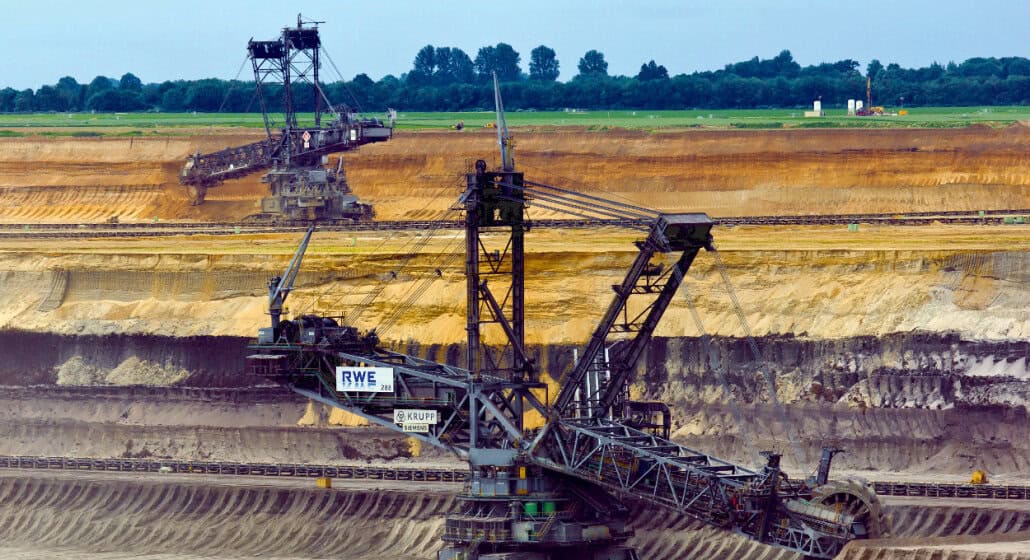Corruption Watch has written an open letter to the AU’s Working Group on Extractive Industries, Environment and Human Rights Violations, urging it to step up action against corruption in the extractives industry. The organisation has made several recommendations which, it says, will help the working group to more efficiently fulfil its mandate.
Read the letter below.
TO: Honourable Solomon Ayele Dersso
CHAIRPERSON OF THE WORKING GROUP ON EXTRACTIVE INDUSTRIES
RE: URGENT CALL FOR ENHANCED ACTION TO FULFIL MANDATE ON SUSTAINABLE AND ETHICAL RESOURCE EXTRACTION
We are writing to you as a concerned stakeholder deeply invested in the sustainable and ethical management of Africa’s vast mineral resources. As you are undoubtedly aware, the African continent is rich in mineral wealth, with the potential to significantly contribute to socio-economic development, poverty alleviation, and the achievement of the African Union’s Agenda 2063. However, this potential can only be realised if our mineral resources are managed in a manner that is transparent, accountable, and respects the rights of all citizens, particularly those in mining communities.
Corruption Watch (“CW”) is a non-profit organisation. It is independent, and it has no political or business alignment. CW is dedicated to combating corruption and promoting transparency and accountability in both the public and private sectors. Our mission is to expose corrupt practices, protect whistleblowers, and advocate for systemic change to build a fairer, more just society.
CW has a vision of a corruption-free South Africa, one in which educated and informed citizens can recognise and report corruption without fear, where incidents of corruption and maladministration are addressed without favour or prejudice, and where public and private individuals are held accountable for the abuse of public power and resources.
As an accredited Transparency International chapter in South Africa, core to our mandate is the promotion of transparency and accountability within private sector and state institutions to ensure that corruption is addressed and reduced through the promotion and protection of democracy, rule of law, and good governance.
Our interest in writing this letter stems from our commitment to ensuring that Africa’s mineral wealth benefits its people and does not become a source of exploitation, environmental degradation, or human rights abuses. We believe that addressing corruption in the mining sector is critical to achieving sustainable and ethical resource extraction. The African Union Working Group on Extractive Industries, Environment and Human Rights Violations (“AU WGEI”) was established with a mandate to ensure that mineral extraction activities contribute positively to the continent’s development and do not harm the environment or infringe upon human rights. Despite the existence of commendable frameworks and policies aimed at promoting sustainable extraction, significant challenges persist. These include rampant corruption, environmental degradation, and the violation of human rights in mining areas.
In light of these concerns, we respectfully urge the AU WGEI to take the following actions to better fulfil your mandate:
- Strengthen governance and anti-corruption measures:
- Implement robust mechanisms to ensure transparency and accountability in the granting of mining licenses and contracts.
- Develop and enforce stringent anti-corruption policies to prevent the mismanagement of mineral revenues.
- Enhance protection for human rights defenders:
- Establish comprehensive frameworks to protect whistle-blowers and human rights defenders who expose injustices in the mining sector.
- Promote and support the implementation of regional and national laws that safeguard the rights and safety of these individuals.
- Enforce the unconditional responsibility of states to prevent all forms of violations of human and peoples’ rights.
- Promote sustainable and ethical mining practices:
- Enforce regulations that require mining companies to adhere to international environmental and human rights standards.
- Ensure that mining activities do not lead to the displacement of communities or the destruction of livelihoods without fair compensation and resettlement plans.
- Ensure that mining activities respect the cultural practices and sites of the communities.
- Engage and empower local communities:
- Facilitate the active participation of local communities in decision-making processes related to mineral extraction.
- Provide educational and economic opportunities to communities affected by mining activities to ensure that they benefit from the resources extracted from their lands.
- Monitor and report on compliance:
- Establish a rigorous monitoring and reporting system to track compliance with ethical mining standards and human rights obligations.
- Publicly disclose findings and hold violators accountable through appropriate legal and administrative actions.
- Encourage implementation of fines and/or sanctions on mining companies and countries that do not comply to international standards.
The AU WGEI has a critical role to play in ensuring that Africa’s mineral wealth contributes to sustainable development and the well-being of its people. By taking decisive action to address the challenges outlined above, you can help create a future where our mineral resources are managed in a way that benefits all Africans and upholds our collective commitment to human rights and environmental stewardship.
We trust that you will consider these recommendations with the seriousness and urgency they deserve. We remain hopeful that, under your leadership, we will witness significant progress in the responsible management of Africa’s mineral resources.
Yours sincerely,
CORRUPTION WATCH

